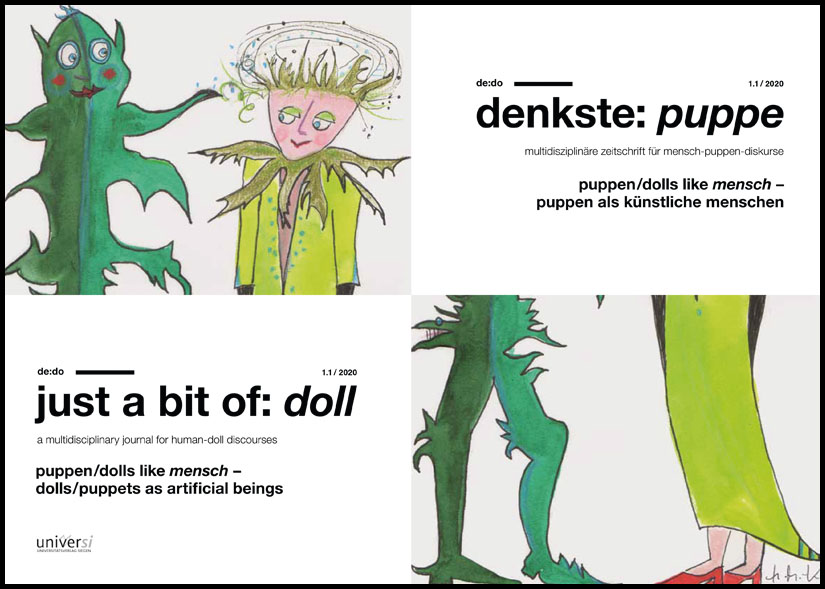Dolls/Puppets as Appearances of the »Others – Mondo Cane« by Jos de Gruyter & Harald Thys
Keywords:
the other, mechanical dolls, Jos de Gruyter & Harald Thys, concepts of work, early modern (doll-)machinesAbstract
The installation Mondo Cane by the Belgian artists Jos de Gruyter and Harald Thys of the Belgian Pavilion at the 58th Venice Biennale focuses on mechanical doll figures that seem to be trapped in loops of monotonous action. They are juxtaposed with a group of others who, behind barred fences, represent the inhabitants of a parallel world. With reference to Hannah Arendt’s critique of modern working conditions, the text examines the role of being active, craftsmanship and the social constitution of monotony. Furthermore, the focus is on the history of alterity and the different manifestations of the others as well as the specific mediality of the doll and/or the puppet.
Downloads
Published
How to Cite
Issue
Section
License
Copyright (c) 2020 Nina-Marie Schüchter

This work is licensed under a Creative Commons Attribution-ShareAlike 4.0 International License.



